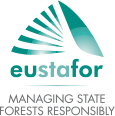COM ENVI Report on Deforestation and Forest Degradation risks excluding most forest management measures, including those for climate adaptation
PRESS RELEASE[1]
Brussels, 11 July 2022
COM ENVI Report on Deforestation and Forest Degradation risks excluding most forest management measures, including those for climate adaptation
The latest available version of the compromise amendments to the COM ENVI Report on Deforestation and Forest Degradation suggests adding forest conversion into the scope of the regulation in a similar context as deforestation and forest degradation. Such a proposal significantly widens the scope of the regulation without prior necessary consultations with forestry experts, thus risking a significant exclusion of a majority of silvicultural measures. If forest conversion is interpreted in the same way as ecosystem conversion[2] as a result of this proposal, the regulation will become an obstacle for necessary forest management practices, including those for climate adaptation. In addition, the regulation will become a tool to regulate and limit forest management, undermining Member States’ legal provisions and going against the principles of subsidiarity and proportionality[3].
“Changing the composition, structure, and function of forest ecosystems is often fundamental to making forests resilient to climate change. Such measures are carefully planned based on local conditions and scientific recommendations. They enable the process of stand conversion which is embedded in numerous Member State forest policy objectives. If this proposal is taken on board, the adaptation of forests to climate change will be made almost impossible, and sustainable forest management will become a concept of the past,” warns Piotr Borkowski, Executive Director of EUSTAFOR.
It is unfortunate that the original COM ENVI proposal for the definition of forest degradation[4] was replaced with an alternative proposal[5] that is too general and leaves much room for interpretation. Namely, without an indication of time, almost any human intervention in forests could be seen as degradation, which is clearly wrong. Forest management operations such as harvesting represent just one step in the whole cycle of sustainable forest management. In the short term, these operations could cause a reduction in the mentioned indicators, but forest sites recover and are not degraded in the long term.
On the positive side, EUSTAFOR notes the abandonment of mandatory third-party audits, leaving this role to the national authorities.
Since the scope of the regulation is quite broad and the respective sectors operate in different realities, EUSTAFOR believes that the commodities covered by this regulation should be addressed via different guidelines. In the context of the regulation, forestry – with timber as its key product – differs very much from other sectors when it comes to management systems which have been put in place, data availability, but also tracking and monitoring systems. Hence, the starting point is different. As much as possible, the guidelines should rely on the existing tools, such as those included in the EU TR, and on national forest legislations already in place.
EUSTAFOR sees as quite problematic the suggestion to empower the Commission to adopt delegated acts to impose polygons as the only means of geolocation when plots reach a certain size. Unfortunately, this demand is being made without proper consultation with forestry experts as regards the elaboration on the methodology, its feasibility, and potential shortcomings in each of the covered sectors. Furthermore, geo-location and remote sensing should not replace the analysis of field data and management practices put in place along with the system requirements of local governance before conclusions have been drawn.
EUSTAFOR considers as indispensable the inclusion of Member States’ experts and forestry research into defining announced guidelines. This role should not be exclusively delegated to the Commission. EUSTAFOR deeply regrets that certain proposals embedded in the compromise amendments are based on misperceptions of sustainability and multifunctionality of forest management. We hope to encourage Members of the European Parliament to recognize and remove these shortcomings from the proposal. EU policies should work towards promoting sustainable and multifunctional forest management worldwide and not create bottlenecks for its implementation.
For more information, please contact:
Piotr Borkowski
Executive Director
office@eustafor.eu
About EUSTAFOR
The European State Forest Association represents the voice of European state forest management organizations who have sustainable forest management and the production of wood as major concerns. www.eustafor.eu
[1] Any statement in this document is to be considered as a reflection of the best available professional expertise and does not necessarily reflect the political commitments of individual member organizations.
[2] (1a) “ecosystem conversion” means the change of a natural ecosystem to another land use or change in a natural ecosystem’s species composition, structure, or function; this includes severe degradation or the introduction of management practices that result in a substantial and sustained change in the ecosystem’s species composition, structure, or function;
[3] https://www.europarl.europa.eu/factsheets/en/sheet/7/zasada-pomocniczosci
[4] (6) ‘forest degradation’ means harvesting operations that are not sustainable and that cause an irreversible reduction or loss of the biological or economic productivity and complexity of forest ecosystems, resulting in the long-term reduction, of the overall supply of benefits from forest, which includes wood, biodiversity and other products or services; and where after harvesting, the forest site is not regenerated through planting or natural regeneration leading to an overall decrease of forest land;
[5] (6) ‘forest and other natural ecosystem degradation’ means the reduction or loss of biological or economic productivity and complexity of forests and other wooded land and other natural ecosystems, affecting their species composition, structure or function, whether or not directly caused by humans; this includes illegal exploitation of forests, other wooded land or other natural ecosystems as well as the use of management practices that result in a substantial or sustained impact on their capacity to support biodiversity or deliver ecosystem services.
Published 11/07/2022, Brussels
Mr. Piotr Borkowski
Executive Director
- piotr.borkowski@eustafor.eu
- +32 (0) 474 989 319
Ms. Amila Meškin
Senior Policy Advisor (Deforestation, Biodiversity, Soils, Environment, Climate)
- amila.meskin@eustafor.eu
- +32 (0) 472 044 759

